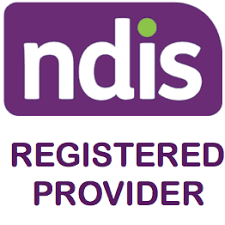Apps
Defining defiant behaviour
Defiant behaviour is defined as the act of refusing to comply with a rule, direction or request made by someone in authority (e.g. parent, educator, support staff or other adult) by challenging, opposing or resisting behaving or conforming to what is asked or expected. Defiant behaviour may look like sarcasm, backchat, breaking rules, rude remarks and swearing.
Defiant behaviour as a part of normal development
For a range of reasons, most children have been defiant at some point. Some level of defiant behaviour may be a part of the normal developmental phase they are going through (e.g. two- to three-year old, adolescence).
It can be in response to overwhelming stresses in their lives (e.g. illness, moving homes, parental separation), or in response to difficulty with coping with emotions (e.g. anxiety, feeling tired, hungry or upset). This defiant behaviour pattern is generally short-lived and tends to disappear as the child adjusts to their new circumstance or matures or develops skills to cope with their emotions and behave in positive ways.
Defiant behaviour of concern
Defiant behaviour becomes a concern when the following occur:
- the frequency (i.e. how often a child exhibits defiant behaviour) becomes excessive,
- the duration (i.e. how long each incident of the defiant behaviour lasts) becomes excessive,
- the intensity (i.e. the strength of the defiant behaviour) escalates from minor behaviours into extreme behaviours, and
- the defiant behaviour negatively impacts the child’s participation in activities, interaction with others, their day-to-day functioning and development.
Impact of defiant behaviour
When a child begins to persistently exhibit defiant behaviour, the climate of the context (e.g. childcare, early childhood, primary and secondary school, disability support and youth services) can change dramatically. A considerable amount of time and energy can be spent on the child showing the defiant behaviour, which can have a deleterious effect on the quality of the learning experience for all the children. Supporting a defiant child leaves adults feeling defeated, exhausted and unsure about what to do next. It feels like everything becomes a never-ending battle of wills. Adults become concerned that each time they give in, they are reinforcing the defiant behaviour; they worry about what that is teaching the child and how it is going to affect the child in the long term. Research consistently shows that managing behaviour is linked to staff experiencing high levels of stress, burnout and job dissatisfaction.
Example
As soon as Olivia is asked to do particular tasks (e.g. packing away) or asked to stop doing something to start a new activity (e.g. finish colouring in, start a writing activity) or stop something that she shouldn’t be doing (e.g. touching the heater), it’s a straight out ‘No’, followed by ‘Why do I need to pack away? You aren’t my boss’, or ‘I don’t want to stop colouring in. You can’t make me’, or ‘I am going to touch the heater. Watch me.’ If her teacher persists in repeating the instruction or correcting her behaviour it results in her yelling, doing it even more and insisting that her teacher needs to say sorry to her. This often results in Olivia missing out on participating and completing various activities throughout the day because she is busy focusing on challenging, opposing or resisting behaving to what is asked or expected of her. This has also caused not only the teacher a lot of frustration, stress and worry, it has also affected the peers because they don’t like the constant conflict that is occurring in the room.
Hence, defiant behaviour affects everyone involved and the child who is exhibiting defiant behaviour requires necessary help to learn positive ways of behaving and managing their emotions.
Positive behaviour support resources for defiant behaviour

Positive Behaviour Support (PBS) focuses on evidence-based strategies and person-centred supports that address the needs of the individual and the underlying causes of behaviours of concern, to enhance the quality of life for both the individual and those that support them.
PBS recognises that there is no single cause for defiant behaviour. It is a complex behaviour that is a product of the interaction between multiple factors contributing to its development and persistence.
Defiant behaviour is like the tip of the iceberg so it is essential to look beneath the surface to work out the why before we can address the problem. Behaviour Help resources are at hand.
Get Started with Behaviour Help App
Assess-manage-prevent behaviours of concern efficiently and effectively with the Behaviour Help App.
Download this free PDF guide
The forms contained in this pdf booklet are from the D for Defiant: Positive Behaviour Support guide that can be used as part of the process of developing a PBS plan.
Get Started with Behaviour Help App
Assess-manage-prevent behaviours of concern efficiently and effectively with the Behaviour Help App.

